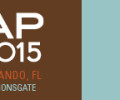Hydro, Austin AI developing technology to sort automotive aluminum alloys
Hydro, Austin AI developing technology to sort automotive aluminum alloys
<![CDATA[
The aluminium company Norsk Hydro, based in Oslo, Norway, has signed a cooperation with the equipment company Austin AI Inc. (AAI), Austin, Texas, to jointly develop and test an advanced technology to sort automotive aluminium alloys. In a release heralding the project, the companies note that new developments can bring a step change to efficient, robust recycling of manufacturing scraps and later on used cars.
The automotive industry has been increasing their use of aluminium to build lighter cars that emit less carbon dioxide. The auto press shops that supply the aluminum alloys to the automakers stamp different sheet components, which require the separation of production scrap. The result of the process is that recycling is becoming a more complex process.
According to the Hydro and AAI, the gap in clean fractioning of the 500 and 600 alloys for recycling can soon be solved through the use of AAI´s technology, which is based on laser-induced breakdown spectroscopy (LIBS). According to AAI, this technology brings advantages compared to other LIBS configurations and has shown good test results in sorting the alloys for clear separation and clean recycling.
To test out the new technology, AAI will be installing a pilot scale sorting facility at Hydro´s research and development center in Bonn, Germany. At the center, Hydro scientists, along with representative of AII, will gradually advance its processes and features. The goal of the test is to increase the effectiveness of the sorting system and ensure high quality sorting results for the required throughput. Once it is determined that the new system can meet the demands AAI will expand the equipment for full-scale industrial use.
“We are optimistic and hope this will close the loop with automotive fabricator scrap and end-of-life vehicle scrap for new car body sheet, substantially saving energy, resources and process effort – another push for sustainable light-weighting with aluminium. Thus, it is a next step on the way to make Hydro a preferred partner for carmakers and a carbon neutral company by 2020,” says Kjetil Ebbesberg, executive vice president of Hydro, who leads the Rolled Products business.
“By developing robust processes, based on LIBS technology, Hydro can accommodate the needs of our automotive industry customers for converting their production scrap today – and help to master future challenges in end-of-life recycling for cars with more aluminium in them,” says Klaus Vieregge, head of Hydro´s R&D Center. “We are pleased with the positive feedback and high interest from several of our key automotive customers.”
According to Hydro, AAI’s LIBS technology has been successful in several other scrap aluminium sorting challenges, such as separating wrought from cast scrap, and removing scrap magnesium from a fraction shredded light metals.
The cooperation with Hydro officially began with R&D trials back in August 2015 and now structured by a comprehensive work plan.
]]>
Source: Recycling Today
Hydro, Austin AI developing technology to sort automotive aluminum alloys
<
